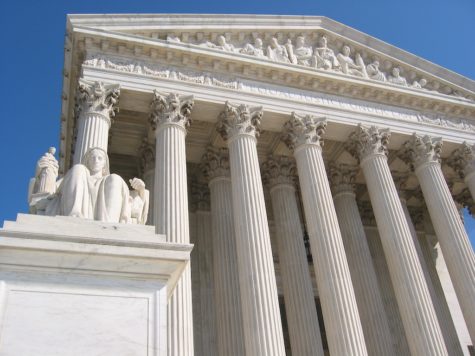Supreme Court poised for affirmative action, redistricting decisions
October 19, 2022

College admissions, LGBTQ+ rights, future elections and environmental protections are among a number of issues addressed in controversial cases the Supreme Court will hear this upcoming term. Many of those rulings will directly impact Louisiana, New Orleans and Tulane University.
Students for Fair Admissions, Inc. v. President & Fellows of Harvard and Students for Fair Admissions, Inc. v. University of North Carolina are arguing over the fundamental issue of whether race can be a factor in admissions in institutions of higher education. The SFFA has said that using race as a factor in the admissions process violates Title VI of the Civil Rights Act of 1964 and the equal protection clause of the 14th Amendment. At Harvard, the SFFA argues that the university is creating an unfair burden for Asian-American applicants and is engaging in racial balancing, therefore violating Title VI. The cases are scheduled for argument Oct. 31.
Those cases have opened the possibility that the Supreme Court will strike down affirmative action this fall, overturning the precedent set by Gratz v. Bollinger in 2003. Affirmative action supporters argue that reversal would reduce the number of Black and Latinx students attending higher education institutions. Opponents of affirmative action argue that any consideration of race violates the equal protection clause of the 14th amendment.
The ruling could also affect Tulane as a school that prides itself on creating a culture of diversity and inclusion. This decision will have far-reaching consequences for the private sector as well as some companies may reconsider their commitment to diversity in hiring practices.
Two cases this term, Caster v. Merrill and Milligan v. Merrill, will discuss the constitutionality of drawing congressional maps. Groups of Black voters and civil rights organizations in Alabama last year filed lawsuits arguing that Alabama’s new congressional maps purposely diluted Black voters’ political power, thereby violating Section 2 of the Voting Rights Act. In a state with a population where 27% of the voting age population is Black, Black voters only had the opportunity to elect a candidate in one out of seven districts. The court heard oral arguments for that case on Oct. 4.
In Louisiana, where 31.9% of the voting age population is Black, Black voters and civil rights groups filed a lawsuit last March alleging that the state’s congressional maps racially discriminate by packing Black voters from New Orleans and Baton Rouge into a single U.S. congressional district. A federal judge found the congressional map in violation of Section 2 of the Voting Rights Act. Supporters argued the state should redraw the map to include two majority-Black congressional districts, but the Supreme Court blocked that order in June, arguing that the battle in Alabama must play out first.
Other cases before the Supreme Court will decide which waterways are protected by the Clean Water Act, whether state courts should have judicial review over state election rules, the line between religious beliefs and LGBTQ+ anti-discrimination laws and legal protections for social media companies. It is also the debut term of the court’s newest justice, Ketanji Brown Jackson. President Joe Biden appointed Jackson, and the Senate confirmed her last April. Many expect her to be a liberal voice on a majority-conservative court.






















Leave a Comment